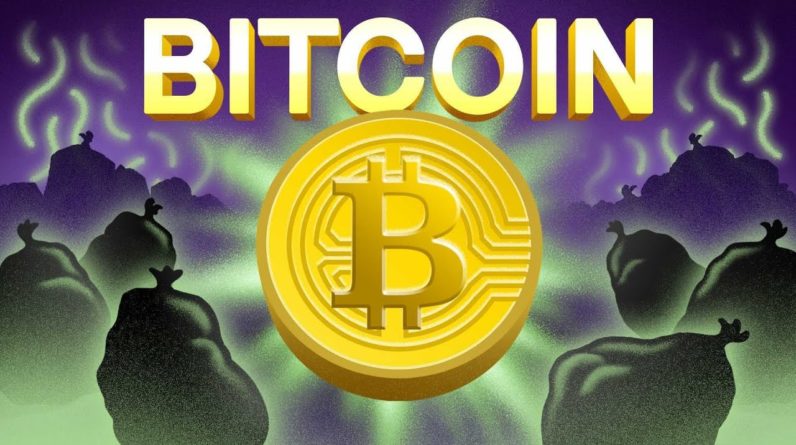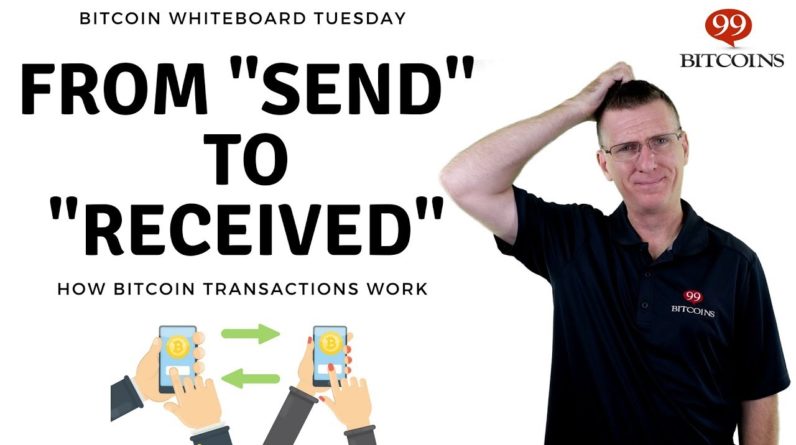
In the early 1920s, a businessman in Boston
had a realization: everybody wants to get rich, without doing any work. So this businessman came up with a brilliant
idea to make a LOT of money. And, like all good financiers, he promised
to make those around him really rich too. The businessman told his investors he was
buying discounted coupons in foreign countries and making money reselling them in the US. It was a middleman opportunity that he claimed
was totally safe and guaranteed a return. The businessman promised his investors a 50
percent profit in 45 days, or a 100 percent profit in 90 days. What this businessman was actually doing was
paying the people who got in early with the money from the people who got in late. Those later investors, excited by hearing
about a guaranteed high-return investment, were left holding the bag. That businessman was named Charles Ponzi.
His name has become synonymous with these
sorts of swindles. His “Ponzi scheme” made millions of dollars
in just a few months. But the con could only go on for so long. Eventually, you run out of other people’s
money. And for Ponzi, when that happens, you go to
jail. A hundred years later, a new bunch of wealthy
investors say they too have a brilliant way to make YOU a lot of money. They promise to make you really, really rich. The best part is, they say, the returns are
guaranteed! Anyone can buy in with any amount of money. It’s called Bitcoin. Sounds fun, right? Bitcoin is a digital token, with no physical
or government backing, that’s run by a global, decentralized network of computers.
These computers keep track of every Bitcoin
transaction, and can move Bitcoins easily from one user to another. There are a limited number of Bitcoins in
the world – 21 million. 19 million of these have already been “mined.” These “mining rigs” are large systems
of computers which perform complex calculations, expending huge amounts of energy, to create
new bitcoins. Massive Bitcoin mining “farms” are set
up in places like Siberia and Northeastern China, where people take advantage of cheap
electricity in massive, wasteful facilities.
But how Bitcoin works doesn’t really matter
that much. All of the stuff you hear about “peer-to-peer
technology” and “the blockchain” really only explains how Bitcoin works as a CURRENCY. But despite the name, Bitcoin is not really
used much as a currency at all. When people buy Bitcoin, they rarely use it
to buy goods and services. They’re really buying access to a Ponzi
scheme. Only 1.3 percent of Bitcoin’s economic activity
is in merchant transactions. The rest is SPECULATION – people buying
it just because they think it will go up. And the more it’s used in speculation, the
less incentive people have to actually use it as a currency.
Why buy something with Bitcoin when you can
hold it and make some easy money? That’s why the peak of Bitcoin being used
to buy things was actually back in 2017, before the price really took off. And, a currency should be stable in value,
not bounce all over the place the way bitcoin does. Rises are nice, but Bitcoin also falls a lot. If you want to speculate, that’s your own
business. But you don’t want the value of your checking
account to gyrate wildly and unpredictably just because Elon Musk tweets about it.
If you have friends or relatives who are into
cryptocurrency, you know that the reason people are into Bitcoin is because they think it
can make them a profit. Because Bitcoin is just a digital token without
any inherent value, they’re not really making an “investment”: they’re engaged in
a financial betting game. Anything you “invest” in bitcoin (or ethereum,
or dogecoin) just goes into the pocket of the previous holder—there’s no real income-generating
asset behind it. What they’re betting on is that other people
will bet on it, and the value will keep going up. If more people are joining the market, you
CAN make money.

You’re not a sucker if the person next in
line is a sucker too. And as long as you can make it out on time,
the next guy is left holding the bag. The good news for these gamblers is that there
are a lot of suckers in the world. The bad news is that eventually, you run out
of suckers. So to keep the scam running as long as they
can, the wealthy proponents of Bitcoin say that it’s “changing the world.” They say that Bitcoin is going to replace
“fiat currencies,” like the dollar.
They say that it’s going to undermine cruel
dictatorships and greedy banks, and help usher in a libertarian utopia of privacy and security. And, most importantly, they say what every
scam artist has said since the beginning of time: get in right now, and you’ll make
quick and easy money. And for the last few years, they’ve actually
been right. If you had spent that money on buying shares
of Apple, you’d have about five hundred and forty bucks. If you spent $100 on Bitcoin in January 2016,
you’d have made more than nine thousand dollars. But that doesn’t mean that Bitcoin is working. It just means that a lot of people have fallen
for the scam. And the more people who buy in, the more the
price fluctuates, and the less usable it is as a currency. The success of Bitcoin as a speculative commodity
has made it socially useless. Anything can fill the role of that scam currency. You’d actually have made just as much money
buying a parody cryptocurrency called Dogecoin that makes none of the grandiose claims that
Bitcoin does.
Meanwhile, as more and more people speculate
on Bitcoin, it consumes more and more electricity, and emits more and more carbon. Because of how complex Bitcoin transactions
are, they consume an incredible amount of power. One Bitcoin transaction consumes more electricity
than the average American household does in a month. Bitcoin as a whole consumes more electricity
than Venezuela, Bangladesh, Pakistan, Kazakhstan, and the Philippines. If Bitcoin ever WERE to be widely adopted,
it would consume many times more energy than is produced by the entire world right now. Bitcoin isn’t useful at all, except maybe
as a symbol of how capitalism has changed: from something that could once build factories
and develop the country, to a system of pure speculation totally divorced from the real
world.
Look at this system: millions of computers
emitting huge amounts of carbon, all to gain access to a digital token with no actual use,
all while infrastructure crumbles and people go hungry. This is a terrible way to organize a society. But just because Bitcoin is a Ponzi scheme
without any benefit to society does not mean it’s going away. Bitcoin has become a CULTURE, an IDENTITY:
amid the vast meaninglessness of a society in decline, a lot of people find value in
it. In a world where traditional forms of identity
are in decline – family, unions, religion – new ones, like cryptocurrencies, spring
up to take their place. The fact that so many lonely, atomized people
find community and meaning in Bitcoin means that for the people at the very top – people
with millions or even billions of dollars – there’s a ready and willing community
of suckers to exploit.
You can still make money off cryptocurrencies. In an age of low wages and mass underemployment,
people will ALWAYS be lured by the promise of getting rich quick. But there will always be somebody left holding
the bag. And it could very well be you. In essence, Bitcoin is a gamble. Gambling can be fun at low stakes with friends. But the people trying to sell you Bitcoin
aren’t your friends. No matter what you tell yourself, you’re
just gambling – not that an asset has value, but that the person next in line is more gullible
than you.
This is Doug Henwood, author of Wall Street,
for the Gravel Institute..




